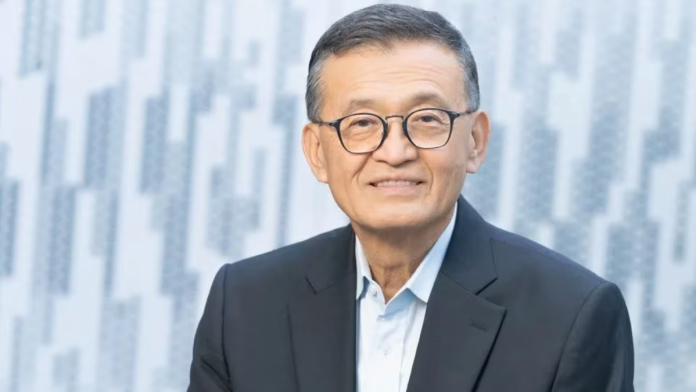President Donald Trump has called for the immediate resignation of Intel CEO Lip-Bu Tan, citing serious concerns about the executive’s connections to Chinese companies with military ties. The demand came after Senator Tom Cotton issued a public letter raising alarms over Tan’s reported business links in China, including associations with firms connected to the People’s Liberation Army (PLA).
The controversy places new pressure on one of America’s most iconic tech firms, as it navigates growing competition, market struggles, and now, political heat.
Intel is not just one of the world’s most recognized chipmakers — it also plays a critical role in the U.S. economy and national defense. Headquartered in California, Intel has long been a key supplier of processors used in personal computers, data centers, and government systems. As global demand for semiconductors surges, Intel’s leadership and ownership are increasingly seen as matters of national interest.
President Trump Demands Action After Senator’s Warning
On Thursday, President Trump posted a strong statement on his Truth Social platform, writing, “The CEO of INTEL is highly CONFLICTED and must resign, immediately. There is no other solution to this problem.”
TSMC reportedly asked to buy 49% of Intel to secure U.S. tariff cuts for Taiwan
His message came just a day after Senator Tom Cotton, a Republican from Arkansas, released a letter questioning Lip-Bu Tan’s extensive business involvement with Chinese technology firms. The senator stated that Tan reportedly controls dozens of companies in China and has financial stakes in hundreds more, many of which operate in advanced manufacturing and semiconductor development.
Senator Cotton further alleged that at least eight of these companies are connected to China’s People’s Liberation Army (PLA) — the military branch often under scrutiny for its role in cyber operations and tech acquisition.
Senator Tom Cotton Flags Military Connections and Export Violations
Cotton also criticized Tan’s past leadership at Cadence Design Systems, a major U.S. software and hardware firm. During Tan’s tenure as CEO, the company pleaded guilty to illegally exporting products to a Chinese military university and transferring technology to an associated Chinese semiconductor company — all without obtaining necessary U.S. export licenses.
These violations, the senator argued, raise red flags about Tan’s suitability to lead a company as strategically significant as Intel. As the CEO of one of America’s leading semiconductor firms, any links to military-related entities in China are considered a serious national security issue.
The concerns surrounding Tan’s ties to China come amid worsening U.S.-China tensions over technology access and intellectual property protection. In recent years, the U.S. has imposed export bans on Chinese tech firms, citing national security risks and concerns about military use of U.S.-made chips and software. Washington has also blacklisted several Chinese companies linked to the People’s Liberation Army, warning American firms against business dealings that could indirectly aid China’s military development.
👁️🗨️Trojan horse at Stanford – Is China using scholarship students as covert intelligence tools?
Intel Faces Business Pressures Amid Leadership Controversy
Lip-Bu Tan is a prominent figure in the semiconductor world. Born in Malaysia, he built his name in Silicon Valley as a tech investor and entrepreneur. He founded Walden International, a global venture capital firm, and later served as CEO and Chairman of Cadence Design Systems. In March, Tan was appointed CEO of Intel, taking over leadership during a time of uncertainty for the company.
Under Tan, Intel has announced significant layoffs as it battles declining market share and rising competition. The company, once the dominant force in global chip manufacturing, has been overtaken by rivals like TSMC in Taiwan and Samsung in South Korea. Meanwhile, Nvidia has surged ahead in the booming artificial intelligence chip market — a space where Intel has struggled to maintain relevance.
Tan has admitted that the road ahead won’t be easy, as Intel works to regain its edge in a fast-changing global tech environment. But with President Trump’s direct call for resignation and Senator Cotton’s allegations, Tan and Intel now face not only market headwinds but also deepening political scrutiny.
